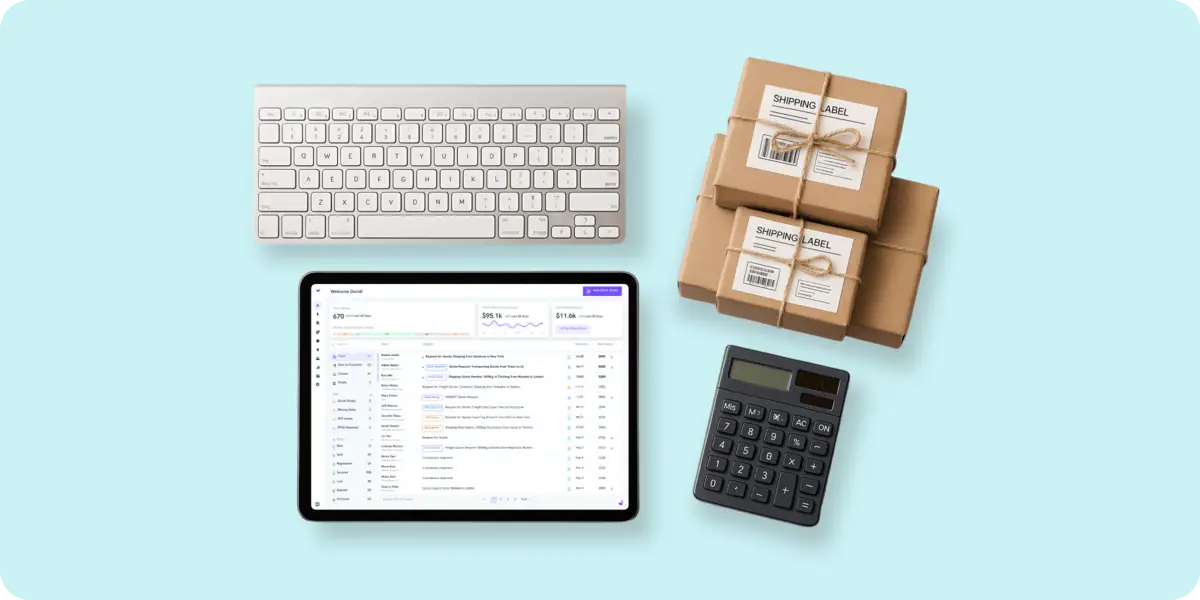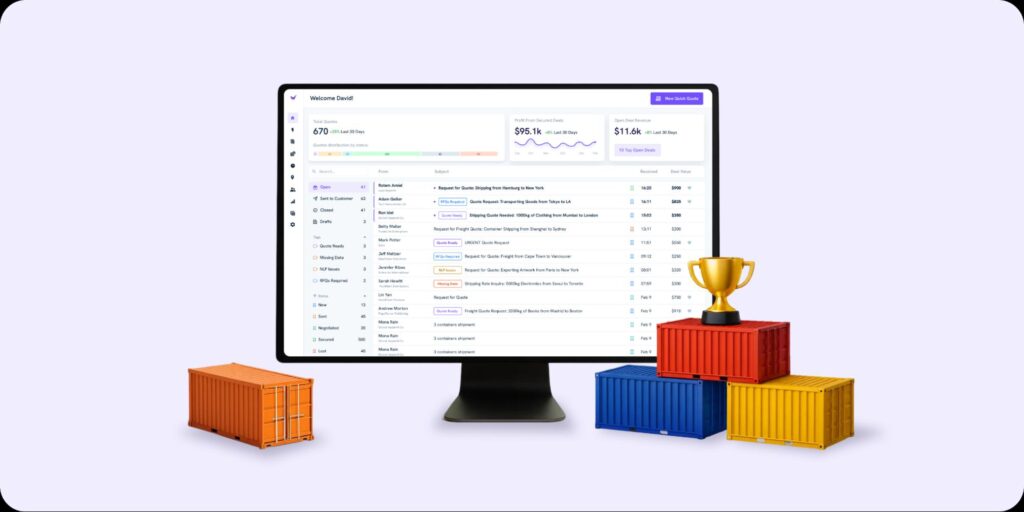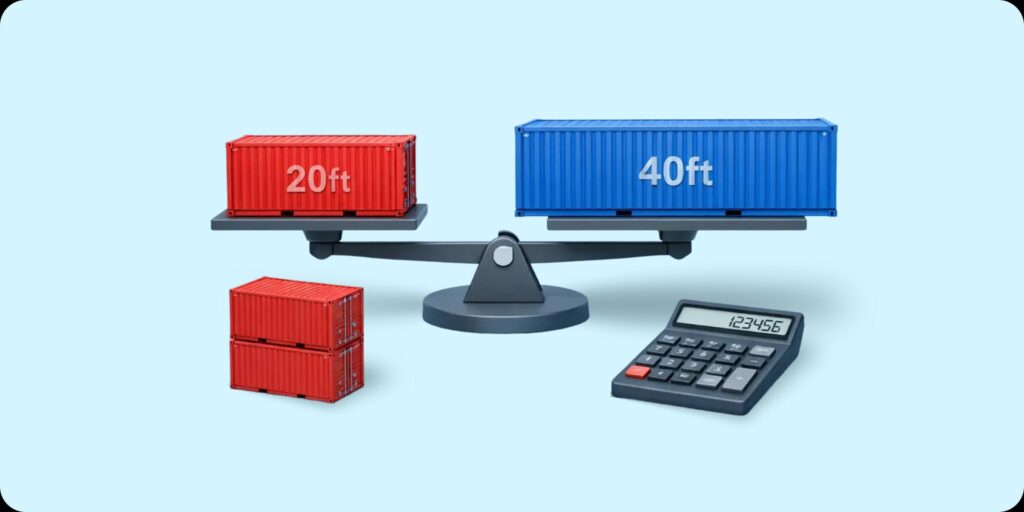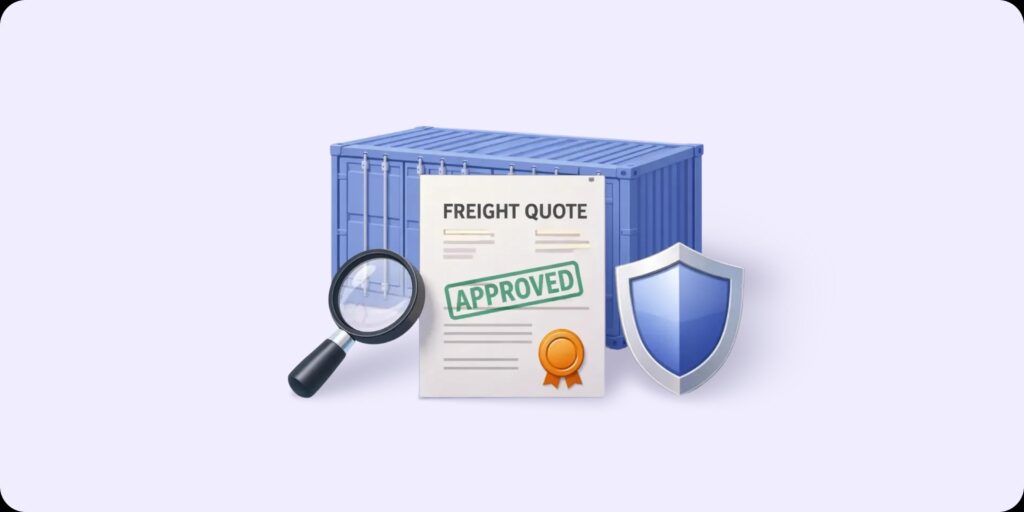Key Takeaways
- AI reduces manual quoting work by up to 90%, optimizing pricing, routing, and customer targeting for faster turnaround and fewer errors.
- Cloud-based SaaS systems lower IT costs, improve accessibility, and boost rate accuracy with real-time, transparent data from multiple sources.
- APIs connect forwarders with live market data, enabling better rate discovery, dynamic pricing, and capacity forecasting through streamlined integrations.
- Automation improves booking speed, enhances visibility, and reduces emissions by optimizing load efficiency and diversifying supplier access.
- Wisor cuts quote turnaround by 85% with an all-in-one cloud-based platform that integrates AI, APIs, automation, and analytics for forwarders.
As those of you who work in freight forwarding know, in a few years from now the industry will probably look completely different than it does today. Since the start of the Coronavirus, the vast world of logistics has faced infinite hurdles, including a lack of workers, port congestion, cargo loading, unloading delays, and more. These issues have accelerated the speed of the tech revolution that has taken over the industry, with startups edging to find solutions. These technological improvements have altered the face of the trade, but they too have pros and cons. On the one hand, many of us have a hard time keeping up with the ever-changing programs and systems, while on the other hand, these same programs can streamline our work and make things easier and more efficient if we are willing to get on board and adapt.
Luckily, the current tech revolution shaking up the freight industry is actually making work more manageable and raising profits for smaller players, and not only for big corporations. This is thanks to the transparency that the latest technologies provide. Likewise, keeping up with the competition no longer requires unaffordable tools. Instead, the only thing that’s necessary is the right software programs. It’s all about being quick, efficient, and intelligent now.
The freight industry is in the midst of a gradual transition from analog to digital management, causing many companies to turn their focus mainly to customer satisfaction, in order to ensure that their clients stay with them during and after this transition. Under this broad umbrella of customer service, things like organization, planning, efficiency, and more, have come under the microscope. Each of these components has been reshaped and amended with the help of tech, thus streamlining work, raising profits, and actually increasing customer growth and happiness.
Did You Know?
Over 65% of logistics firms are already using AI, mostly to cut quoting time and improve rate targeting, especially for complex tradelanes.
4 Tech Trends to Keep an Eye Out For in the Coming Years
1. AI – Artificial Intelligence
AI is a growing field in many sectors, including freight forwarding and logistics. AI has tons of benefits, starting with fewer of those pesky human mistakes. And get this – AI works faster and more efficiently than most humans, achieving faster turnaround and minimizing delays. Besides, AI can make sense of internal and external trends and predict future issues and opportunities. By letting AI research and create quotes, forwarders can cut down up to 90% of their manual work and free up time to grow their business and fulfill their clients’ needs. AI also has the technology to guarantee optimization of routes and prices and the power to learn clients’ preferences and behaviors in order to suggest more suitable offers for them. Plus, AI can even predict market trends based on multiple factors and make intelligent purchases in advance.
2. Cloud-Based Software Solutions or SaaS
In all industries, on-premise solutions are becoming passe as cloud-based software solutions have moved to the forefront. SaaS Rate and Transportation Management Systems have started to take over the field of freight and logistics. Moving to the cloud makes work easier and less expensive, seeing as it cuts the costs of IT infrastructure, operations, and hardware. Also, cloud-based software is accessible from anywhere, as long as an internet connection is available, making it the only choice in today’s world – with more and more people working from home or choosing the digital nomad lifestyle. Not only that, but SaaS also has the technology to converge data from countless internal and external sources, allowing for greater transparency and visibility and finding better rates and routes for freight forwarders. SaaS systems are seamless to set up, simple to update, and completely scalable, allowing smooth business growth and development.
3. APIs – Application Programming Interfaces
API’s are what make the interactivity we all rely on in our day-to-day lives possible. APIs are that special ingredient that is helping freight forwarders retrieve data from third parties. They allow forwarding companies to obtain real-time data, stay on top of the current rates and fastest routes, and foresee obstacles regarding port congestion, weather disturbances, last-minute route changes, etc. They’re like messengers that collect data from all over the web and deliver it back to SaaS systems, creating connectivity between 3PLs. APIs gain forwarders more flexibility and better price discovery in the market. The hope is that in the future, the use of APIs will shape a more dynamic pricing environment that will decrease tender rejections and guarantee capacity by streamlining the way the different industry components work together and connecting between customers, forwarders, carriers, and ports.
4. Automation
For freight forwarders, automation technology is used to search, book and answer client requests more efficiently. But this automation, with the help of APIs, also allows forwarders more visibility and gains them further transparency and information that, beforehand, only the largest corporations had access to. By digitalizing the quote research and booking processes, technology democratizes logistics by allowing freedom of information to all companies and providers, leading to the diversification of suppliers and the growth of small marginalized businesses. And the really fantastic thing is that automation has also increased sustainability by identifying backhaul opportunities and making sure that carriers no longer depart with planes, ships, trains, or trucks that aren’t full. Not only that, but the democratization of data has helped forwarders find shippers the quickest and most convenient routes to deploy their cargo, therefore lowering costs for all parties and bringing down unnecessary mileage, which, in turn, reduces carbon emissions.
Is your business already en route and reaping the rewards that these innovative technologies offer? Taking advantage of the tools at hand is the best way to stay above and beyond the competition. Consumers are coming to expect quick, efficient shipping because of these revolutionary technological novelties and others in the broader logistics sector, such as IoT, Advanced Machine Learning, Robotics, and Analytics.
Expert Tip: Layer AI, APIs, and Automation, Don’t Silo Your Stack
- Inject AI into quoting and routing: Use AI to auto-generate FCL/LCL quotes, run lane-specific margin simulations, or prioritize RFQs based on client win likelihood. This shaves hours off quoting and reduces manual lookup errors.
- Trigger API-fed alerts into operations workflows: APIs can notify you in real time when rates shift, transit times spike, or ETAs slip, before customers call. Forward this intel directly to clients to boost trust.
- Automate pre-booking validation: Combine automation and SaaS to check port congestion, equipment availability, and haulage cut-offs before locking bookings. This avoids costly rollovers or missed CY cutoffs.
- Centralize via cloud tools with audit trails: Use cloud-based TMS or quoting layers that log all edits, user actions, and approvals. This improves compliance, especially for DG and customs-sensitive cargo.

Insight by
Nadav Shitrit
VP of AI, Wisor
Conclusion
With the help of the technologies on this list above and many more up-and-coming trends, life has been made better for those willing to take the leap and harness the power of high-tech software. And, thankfully, Cloud-Based Solutions make the growing pains associated with software implementation virtually nonexistent.
Wisor.ai knows the importance of integrating new technologies and understands that there is no escape from using them. Therefore we’ve created an efficient and easy-to-use solution for the freight forwarding industry, out of an understanding of the problems and pains of the industry and the knowledge of where the world is headed.
Wisor offers and provides forwarders an all-in-one, B2B, Cloud-Based Solution that integrates Automation, AI, APIs, Transparency, Real-time data, Analytics, and much more into one easy to use, plug-and-play software system.
Embracing tech innovations can enhance and optimize the way things have always been done without over-intrusive procedures that disrupt work and cause drastic or confusing change. It just depends on which software you choose. Become the master of your own freight by choosing a company that encompasses these 4 essential technologies.







